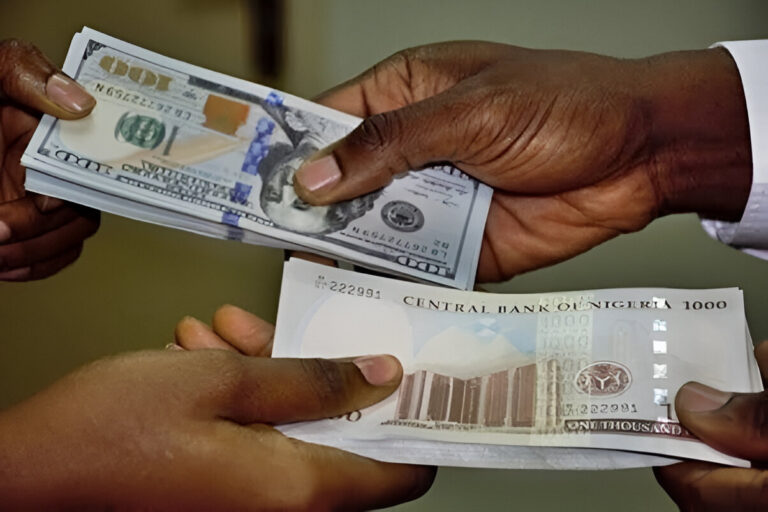Though Nigeria’s local currency recently stabilized at around ₦1,602.18 to the dollar, financial analyst and CFG Advisory CEO, Tilewa Adebajo, insists the naira ought to be performing better—trading under the ₦1,000 mark—if actual economic indicators were accurately reflected.
On May 1, 2025, the naira maintained a rate of ₦1,605 to the dollar in both the official Nigerian Foreign Exchange Market (NFEM) and the parallel market. Yet Adebajo believes current metrics support a significantly stronger naira.
In a detailed position paper titled “Is the Naira Undervalued at Over ₦1,000 per Dollar?”, he cited a healthier foreign exchange system, larger reserves, and higher oil output as grounds for a more robust local currency.
Adebajo pointed out that the gap between the black market and official exchange rates has dropped sharply, shrinking from more than 50% in 2022 to under 5% in 2025. He attributed this progress to a Bloomberg-based bid/offer platform, which has improved clarity and pricing mechanisms in the FX market.
Following a directive by the Central Bank of Nigeria in December 2024, all interbank players were required to trade FX through the Bloomberg BMatch platform—a move that has enhanced transparency and encouraged more inflows.
“Since early 2024, foreign currency inflows have consistently exceeded outflows,” Adebajo explained. “Monthly average turnover in the FX market rose to $8.1 billion in 2025, compared to $5.5 billion the previous year.”
He also noted that Nigeria’s foreign reserves improved dramatically—climbing from $30 billion in March 2024 to a stable level of around $38 billion by early 2025. The net reserve figure, which had bottomed out at $4 billion in 2023, surged to $23.1 billion by the end of 2024.
Adebajo highlighted progress in oil production, crediting the new leadership at NNPC for prioritising reentry drilling—an efficient technique for reviving production in older oil fields. Regulatory reports from the Nigerian Upstream Petroleum Regulatory Commission show that the nation’s rig count increased from 18 to 38 in one year and may reach 50 rigs by the close of 2025.
He called for urgent audits and reconciliations of Nigeria’s forward oil sales agreements, noting that this could significantly impact FX revenues and improve fiscal accountability.
On trade, Adebajo shared that Nigeria’s imports totaled $43 billion in 2024. In comparison, FX market activity had the potential to yield $97–$100 billion annually, creating an excess of $40–$50 billion for non-trade FX needs and informal sector demands.
“Now that the CBN has cleared its backlog and contributes only about 2% to the total FX volume, how can we still claim that demand outpaces supply?” Adebajo questioned.
He urged a shift in perception about the FX market’s purpose. “The market exists to serve the economy, not as a tool for profit-seeking. It should prioritize fair pricing, not create loopholes for arbitrage.”
Adebajo cautioned that speculative activity and market manipulation remain obstacles to sustainable growth, warning: “Without transparency, we encourage exploitation. Open and honest markets should close the door on arbitrage—not open it wider.”

